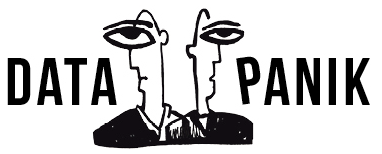![]() Filosoof Evan Salinger legt in een column helder en duidelijk de minder fraaie implicaties van facial recognition software bloot.
Filosoof Evan Salinger legt in een column helder en duidelijk de minder fraaie implicaties van facial recognition software bloot.
It’s no mystery that big data presents a challenge to privacy. But perhaps more alarming is the emergence of technology that combines facial recognition and data analytics to create a powerful surveillance tool. It’s a disturbing development that combines the most worrisome aspects of algorithmic and big data technology with the chilling and dangerous threats inherent in facial recognition.
Voorbeelden die Salingern geeft zijn onder meer de app FindFace, Google’s chat app Allo en de Israëlische startup Faception. Die laatste beweert over software te beschikken die op basis van gezichtsherkenning om het even wie zou kunnen labelen: “from great poker players to extroverts, pedophiles, geniuses, and white collar criminals.” Creepy? Zeker als je weet dat het bedrijf recent werd ingehuurd door de Amerikaanse veiligheidsdiensten omte helpen bij het uitpikken van terroristen. Blijkbaar geen probleem dat de software naar eigen zeggen een foutenmarge heeft van 20 procent (en dat is dan wellicht nog optimistisch geschat). Met andere woorden: minstens 1 op 5 wordt valselijk verdacht van terrorisme.
Advocates of this kind of data analysis might argue that algorithms will get better as the data science advances and computers can make more decisions more quickly. But false correlations are already plaguing big data. Unfortunately people tend to place far too much confidence in anything a computer spits out. This phenomenon known as “automation bias” looms large with the implementation of predictive facial recognition technologies.
Even if technology can guess correctly, do we really want to live in a society in which machines try to suss out deep truths based on our facial features? If that were the case, our “faceprints” would serve as beacons for unwanted attention, threatening our obscurity – the idea that when information about us is hard to find, it’s safer. And you can’t ditch the beacon unless you want to wear a mask in public for the rest of your life.
Our faces are indeed exceptional. But predictive facial recognition technology and companies like Faception exacerbate the most dangerous aspects of both big data and facial recognition.
— lees het volledig artikel: The ugliest side of facial recognition technology (Christian Science Monitor, 27/5/2016)

